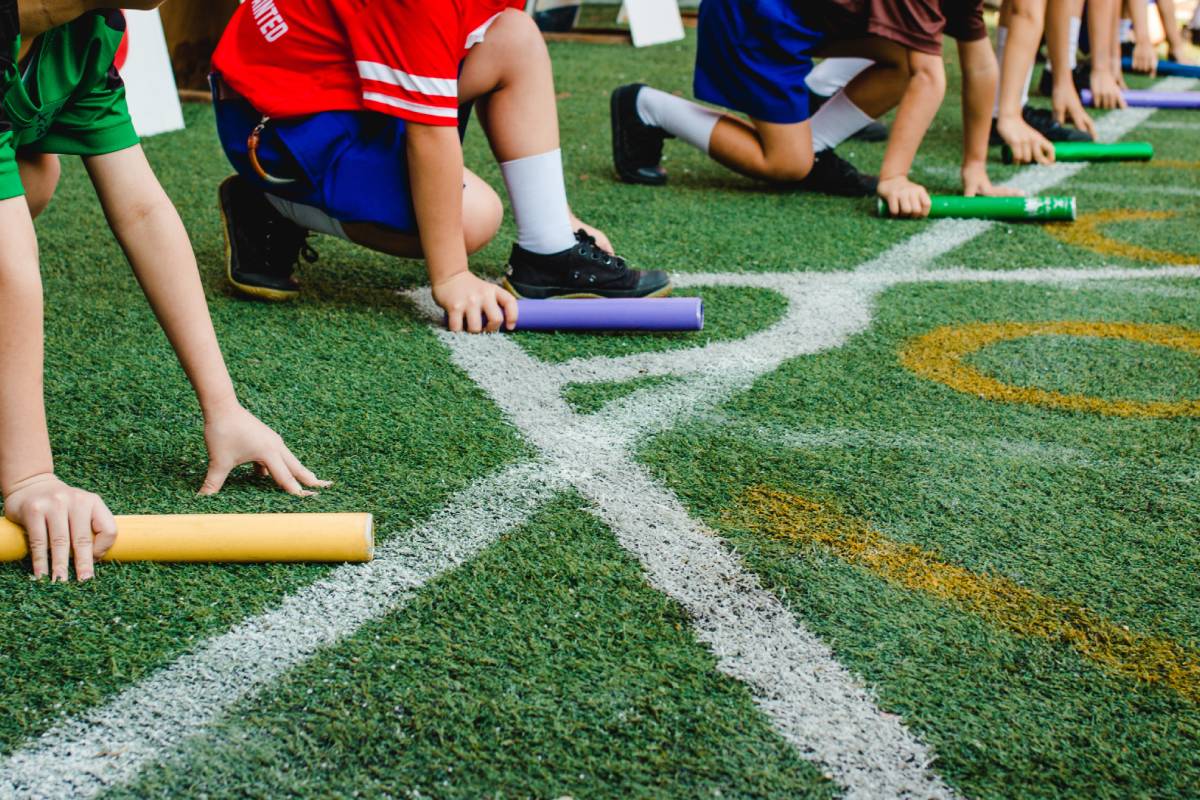Almost every primary school teacher dreads a sports day. Not because they don’t like having fun with the children or because they don’t appreciate the benefits of sport but simply because it is so stressful.
Sports day means carrying out all the most challenging aspects of your job, such as behaviour management, risk assessment, and safeguarding in a goldfish bowl surrounded by parents.
This lighthearted guide will give you some handy hints and tips to help you get through even the most stressful sports day.
Weather – You must be prepared for anything from glorious sunshine to hailstorms.
Since the British weather can go through every season in a day, it’s a good idea to make sure the children take a sweatshirt outside with them to avoid the cries of children turning blue as they watch the three-legged race.
Should you be lucky with sunshine, ensure you have reminded parents to apply sunscreen to their offspring to avoid red faces. Encourage everyone to take a water bottle outside and ensure they are named.
Don’t forget to do the same yourself!
Dress Code – This might be one of the days when you can deviate from the usual staff dress code and wear some sports kit. Plan ahead and ensure you do not resort to a holey pair of leggings or cropped top that reveals too much.
Also, it is probably not the greatest idea to pull on a worn slogan t-shirt from your uni days because you can guarantee it will offend someone.
Dressing in appropriate comfortable layers and trainers will ensure you can run after escaping children without embarrassment.
First Aid – You may be used to treating most ailments with a wet paper towel throughout the year. Still, on sports day, ensure you are prepared by understanding the dangers and knowing where the first aid kit and responsible staff members are located.
Remember, you will need to show even more TLC and professionalism than usual. You will be judged on your ability to remain calm even in the worst crisis, such as when a child claims to have a broken leg after finishing the egg and spoon race.
Risk Assessments – Hopefully, someone else has carried out the actual risk assessments for each activity, but you can make your day smoother by doing some of your own.
Be aware of those pupils who may end up brawling over the results and give them roles that will keep them apart. Have some essential items that can be held and treasured by the nervous class members so they have an excuse to stay close to you.
Whatever you do, do not hand over your whistle to any pupil who will deafen the parents and headteacher with glee.
Teacher Participation – Do your research and determine whether your school will likely spring a teacher/parent tug of war or race on you at the last minute. There is nothing worse than being caught out unexpectedly.
If you can’t bear to participate, have your reason ready, but remember that your class may judge you harshly. Sometimes, even if embarrassing, these moments build the best relationships with the children.
Have Fun – Yes, a sports day can be stressful, and you may feel self-conscious about being judged, but try to focus on the good points. It is a chance for children to achieve something outside the classroom and celebrate individual wins, heroic efforts and overcoming disappointment.
You have a perfect opportunity to build relationships with parents in a more informal setting, encourage teamwork with your class and have some lighthearted fun. Your attitude will set the tone, so be enthusiastic and supportive.
Be courageous, keep smiling and have a wonderful sports day!



